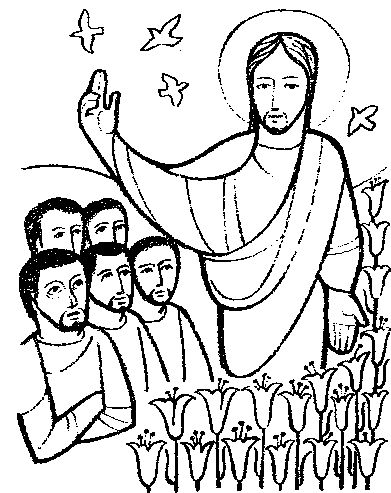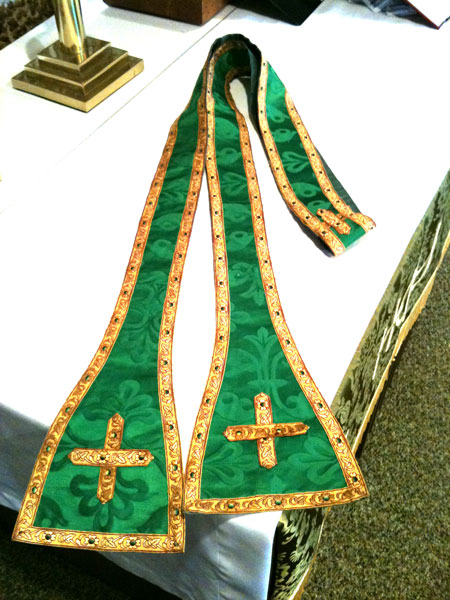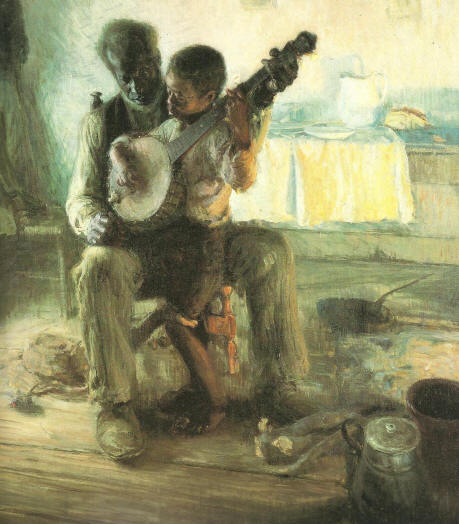
Click here to listen!
“No one can serve two masters; for a slave will either hate the one and love the other, or be devoted to the one and despise the other. You cannot serve God and wealth.” One of my friends in ministry shared with me the blessings and woes of working with his congregation’s mission committee. Their annual budget for mission was $500. The mission committee always saw this as a defeat. They assumed that there wasn’t much they could do to serve the kingdom, yet they went ahead with the normal seasonal missions. For Thanksgiving they cooked a meal for those who were hungry. They collected toys for children in the area for Christmas. They held bought plastic eggs and candy for the neighborhood Easter egg hunt. Well, one day someone willed their committee $1,500 upon her passing, so the next year they had $2,000 in the mission account. Now the sky was the limit for this community. They started brainstorming as to how they could use the money. They decided to collect food for the food bank, so each member went to the store and gathered an extra item or two and they donated several hundred pounds of food. Later they decided to write get well cards to people in the hospital. They also decided to go out into the neighborhood and pick up trash that lined the streets and ditches. For Easter they decided to have a special worship service where they would gather and play all the old favorite hymns about triumph and glory. They offered some pretty remarkable things. When the mission committee gathered at the end of the season they experienced and interesting miracle. They discovered that there was still $2,000 in the account.
Money is powerful! Before they received their gift, they viewed their $500 as a burden, or at least a failure. When they had a large sum to work with, they began brainstorming some wonderful ideas. It’s like this new sum offered them possibility. In actuality they had been asking money’s permission to do the things of the kingdom, and when they were no longer worried about running out of money, they hit the streets with service that hardly cost a thing. I said on facebook earlier this week, “If we cannot serve God and money, why are both chairpersons of our committees?” Money is powerful, but it is only as powerful as the power we allow it to have. But stewardship season is not until late October/early November, so I guess we’re not supposed to talk about it now.
 Jesus goes on to say, “Therefore I tell you, do not worry about your life, what you will eat or what you will drink, or about your body, what you will wear. Is not life more than food and the body more than clothing?”
Jesus goes on to say, “Therefore I tell you, do not worry about your life, what you will eat or what you will drink, or about your body, what you will wear. Is not life more than food and the body more than clothing?”
A couple of years ago I went to a two day meditation workshop. One of the first things the instructor asked us to do was eat a tangerine (I thought, I could get used to this kind of workshop). I peeled the tangerine and took a segment and quickly ate it, and while I was eating I started to pull another segment. While I was chewing, the next segment was already in hand, so that I couldn’t even get a breath in between slices. This is how I eat. You know, at a party I go and gather lots of chips in one hand and then I sit and watch the game and when my hand is empty I go and get another handful. I mean, it’s rude to pull up a chair to the chip and dip table, right? Anyway, after we finished the tangerine the teacher asked us what it was like. I didn’t really know what to say. It was . . . like . . . eating a tangerine. The teacher noticed that before I had finished a segment, I had the next segment ready to go in my hand. He asked me why. I don’t know. It’s just how I eat. He said, “No, there’s something inside of you telling you that if you don’t quickly eat the tangerine, something’s going to happen causing you not to be able to finish. This is a metaphor for our lives,” he said. “When we begin a task, we complete the task for the simple reason to have the time to go to the next task.” I think that’s true, at least, it is for me. In the morning I drink coffee so I can entertain the girls, so I can put them down to make breakfast, so I can get them dressed for school, so I can get them to school, so I can go to work, so I can come home from work, so I can play with the girls, so I can wear them out for bed, so I can watch Gray’s Anatomy, so I can take a shower, so I can go to bed. The teacher went on to say, “When we do things so that we can move on to the next thing, we aren’t actually doing anything.”
 This is a terrible way to live. Can you imagine living for the next task? I realized that I had been living like this, well, all of my life, and according to this thought, my life was spent doing, well, nothing. He handed us another tangerine and this time we were to simply eat it. We are not to eat it so that we can go on to the next exercise. We are to eat it, slowly. Finish a section before grabbing the next piece. Simply enjoy eating the tangerine, and when we finished we sat in silence.
This is a terrible way to live. Can you imagine living for the next task? I realized that I had been living like this, well, all of my life, and according to this thought, my life was spent doing, well, nothing. He handed us another tangerine and this time we were to simply eat it. We are not to eat it so that we can go on to the next exercise. We are to eat it, slowly. Finish a section before grabbing the next piece. Simply enjoy eating the tangerine, and when we finished we sat in silence.
Don’t worry, Jesus says. It doesn’t add a single moment to your life. In fact, it can shorten your life. What do you worry about? Can you balance the checkbook? Are your children going to get into a good school? Will he come home tonight? Worrying always looks to the future, but for the wrong reason. As far as I am aware, no one is worried about FDR’s administration, or the Spanish American War. Worrying looks to an uncertain future and makes it certain with the worst possible outcome. Jesus says, “Consider the lilies of the field, they neither toil nor spin, and even Solomon in all his splendor was not clothed like one of these.” Sounds easy enough, but it’s not. Worrying is easy. Coming to a point where you aren’t worried, now that’s hard work.
Earlier this week, I was at a clergy retreat about the future of the church, and it was quite fascinating. It would be a disservice to you for me to paraphrase a three day workshop poorly, but he began by saying that every 500 years the church goes through a dramatic shift. In the first 500 years of the church, the church was transitioning from persecution to empire. 500 years later the church split into Eastern Orthodox and Roman Catholicism. 500 years after that was the Protestant Reformation. 500 years after that is . . . well . . . today. The church is walking into a period of wilderness. Thumb wrestle . . . As I said, to paraphrase a three day gathering into one sermon isn’t fair, but all of this to say, when the future is not certain it causes great anxiety and this worrying fills in the gaps of the story, usually with a terrible outcome.
It seems that coming to a place of not worrying is easy. It’s like your boss coming to you and asking you to put together a presentation for the board next week on which your job hangs in the balance. And then he says, “Don’t worry about it.” What does that mean? Does that mean we just show up for the presentation with nothing to say? No, it means we work diligently, we do our homework so that when the time comes for the presentation, then we are no longer worried because we are prepared.
Letting go of worry it tough work. It means that we listen to what God is calling us to accomplish today. Jesus says, “Do not worry about tomorrow, for tomorrow will bring worries of it’s own. Today’s trouble is enough for today.” This goes in the category of things I wish Jesus hadn’t said, or at least, things I wish Jesus had said differently. Jesus didn’t say not to worry about tomorrow because there will not be any problems tomorrow. No, he said that today is enough. Don’t you see? Worrying projects us into the future with no concern of the “now.” Today is enough.
The church which had only $500 for mission felt trapped and confined, not because they had $500, but because they felt like they didn’t have enough. It seems silly for me to tell someone who is starving, “Don’t worry about what you’re going to eat. Look at the birds. God provides for them and God will provide for you,” until I realize that I usually eat five times a day. God does provide enough. It’s just that I try to take as much as I can, I try to eat the tangerine as quickly as I can, because deep down, I think it will run out. I won’t have enough. You see, when the church felt that they had enough they began to do some remarkable things, which hardly cost them anything. In essence they no longer asked money its permission to do the work of God. When they felt like they had enough, they started listening to God, and what God says over and over again, and what Jesus is saying today, there is enough. Don’t worry. When I take my gifts and offer them to my neighbor, there is enough. When I stop doing for the sake of doing, I begin to realize there is enough time because I’m no longer wasting time.
 Jesus concludes by saying, “Seek ye first the kingdom of God, and all these things will be added unto you.” The “These things,” is not money and food and clothing, it is a life without worry because we have shared our money and food and clothing. Consider the lilies of the field. They bloom in all their beauty and splendor not for themselves, but so that another flower may receive life giving pollen. God provides enough and when we open up and bloom with all the gifts and beauty and splendor God has given we will see that there is enough. We will see the kingdom after which we seek. Don’t worry. May the peace and love and grace of Christ be with you always. Amen.
Jesus concludes by saying, “Seek ye first the kingdom of God, and all these things will be added unto you.” The “These things,” is not money and food and clothing, it is a life without worry because we have shared our money and food and clothing. Consider the lilies of the field. They bloom in all their beauty and splendor not for themselves, but so that another flower may receive life giving pollen. God provides enough and when we open up and bloom with all the gifts and beauty and splendor God has given we will see that there is enough. We will see the kingdom after which we seek. Don’t worry. May the peace and love and grace of Christ be with you always. Amen.
















